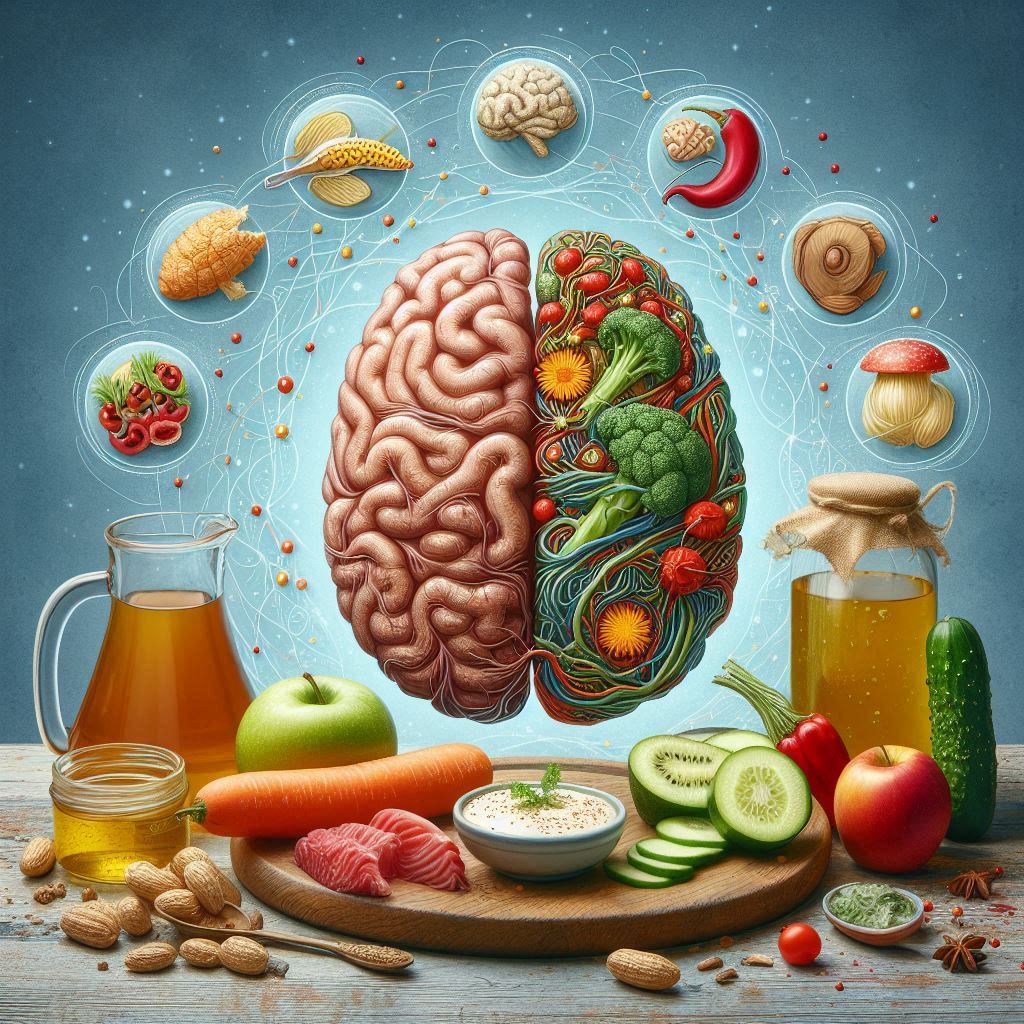Fermented foods have long been celebrated for their distinctive flavors and culinary versatility, but recent research highlights their profound health benefits, particularly in relation to gut health and cognitive function. This article delves into the intricate relationship between the gut-brain axis and the advantages of incorporating fermented foods into our diets, emphasizing their role in fostering a healthy microbiome and supporting mental well-being.
Understanding the Gut-Brain Axis
The gut-brain axis is a complex communication network linking the gastrointestinal tract and the brain, involving neural, hormonal, and immunological pathways. This system allows the gut to influence brain function and vice versa. The gut microbiome—the diverse community of microorganisms residing in our intestines—plays a pivotal role in this connection, affecting various aspects of mental health, including mood regulation, cognition, and emotional stability.
Health Benefits of Fermented Foods
1. Enhancement of Gut Flora
Fermented foods are abundant in probiotics—beneficial bacteria that promote a healthy gut microbiome. By increasing microbial diversity and stability, these foods support digestion, nutrient absorption, and immune function. A balanced gut microbiome is essential for overall health.
2. Improved Digestion
Probiotics present in fermented foods produce enzymes that facilitate food breakdown, enhancing nutrient accessibility. For instance, yogurt can aid those with lactose intolerance by breaking down lactose during fermentation, leading to improved digestion and reduced gastrointestinal discomfort.
3. Strengthened Immune Response
A significant portion of our immune system is located in the gut. Fermented foods help maintain a robust gut barrier, preventing harmful pathogens from entering the bloodstream while promoting the production of antibodies and enhancing immune cell activity.
4. Reduction of Inflammation
Chronic inflammation in the gut can lead to various health issues, including digestive disorders and mental health problems. Fermented foods contain bioactive compounds with anti-inflammatory properties that help mitigate gut inflammation and promote overall wellness.
5. Support for Mental Health
The connection between gut health and mental well-being is well-documented; a healthy gut can positively influence mood through the production of neurotransmitters like serotonin. Regular consumption of fermented foods may alleviate symptoms of anxiety and depression by fostering a balanced gut microbiome.
Fermented Foods and the Gut-Brain Axis
Recent studies underscore how fermented foods impact the microbiota-gut-brain axis:
- Microbial Communication: The beneficial microorganisms in fermented foods interact with the gut lining and communicate with the brain via various signaling pathways, influencing cognitive functions such as memory and learning.
- Neuroprotective Effects: Consuming fermented foods has been linked to neuroprotective benefits that may slow cognitive decline in older adults. This effect is attributed to reduced inflammatory processes and increased levels of brain-derived neurotrophic factors (BDNF), which support neuronal health.
- Maintenance of Gut Barrier Integrity: Fermented foods contribute to a healthy intestinal barrier, preventing conditions like leaky gut syndrome that can lead to systemic inflammation and negatively affect brain health.
Conclusion
Incorporating fermented foods into one’s diet can yield significant benefits for both gut health and cognitive function through their effects on the microbiota-gut-brain axis. By promoting a healthy balance of gut bacteria, enhancing digestion, boosting immunity, reducing inflammation, and supporting mental well-being, these foods serve as vital components in maintaining overall health.
As research continues to illuminate the complex connections between our gut and brain, it becomes increasingly evident that dietary choices profoundly impact our mental and physical well-being. Embracing fermented foods is not merely a culinary trend; it represents an investment in long-term health for both our guts and brains as we navigate our daily lives.
Citations:
[1] https://pubmed.ncbi.nlm.nih.gov/39449646/
[2] https://www.frontiersin.org/journals/nutrition/articles/10.3389/fnut.2023.1170841/full
[3] https://www.healthline.com/nutrition/gut-brain-connection
[4] https://www.eatingwell.com/best-fermented-foods-for-brain-health-8729105
[5] https://www.news-medical.net/news/20240129/Fermented-foods-linked-to-mental-health-benefits-through-gut-brain-connection.aspx
[6] https://www.mdpi.com/2311-5637/8/7/303
[7] https://continentalhospitals.com/blog/role-of-fermented-foods-in-maintaining-gut-health/
